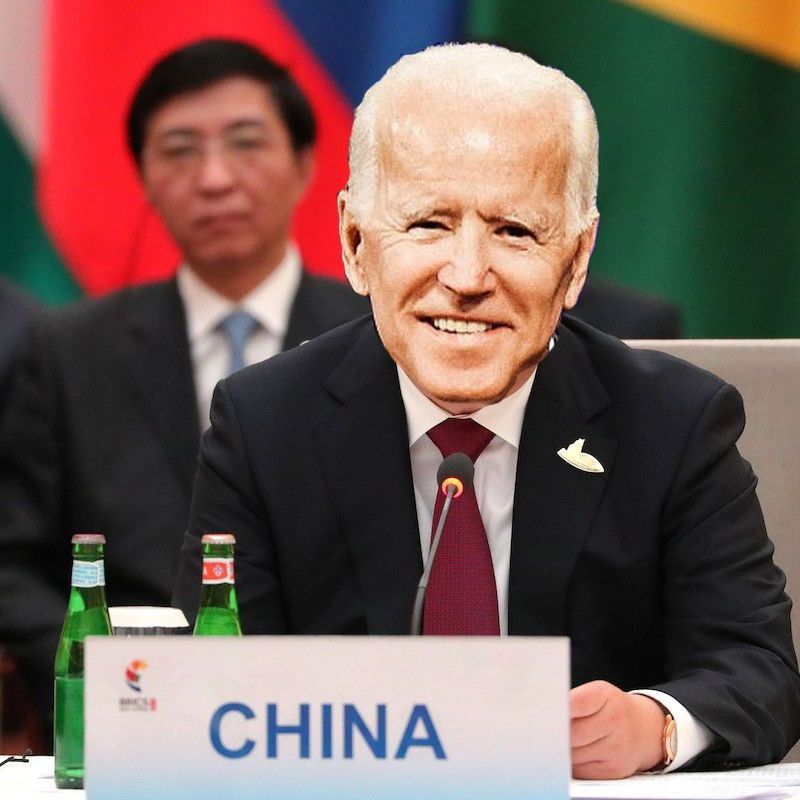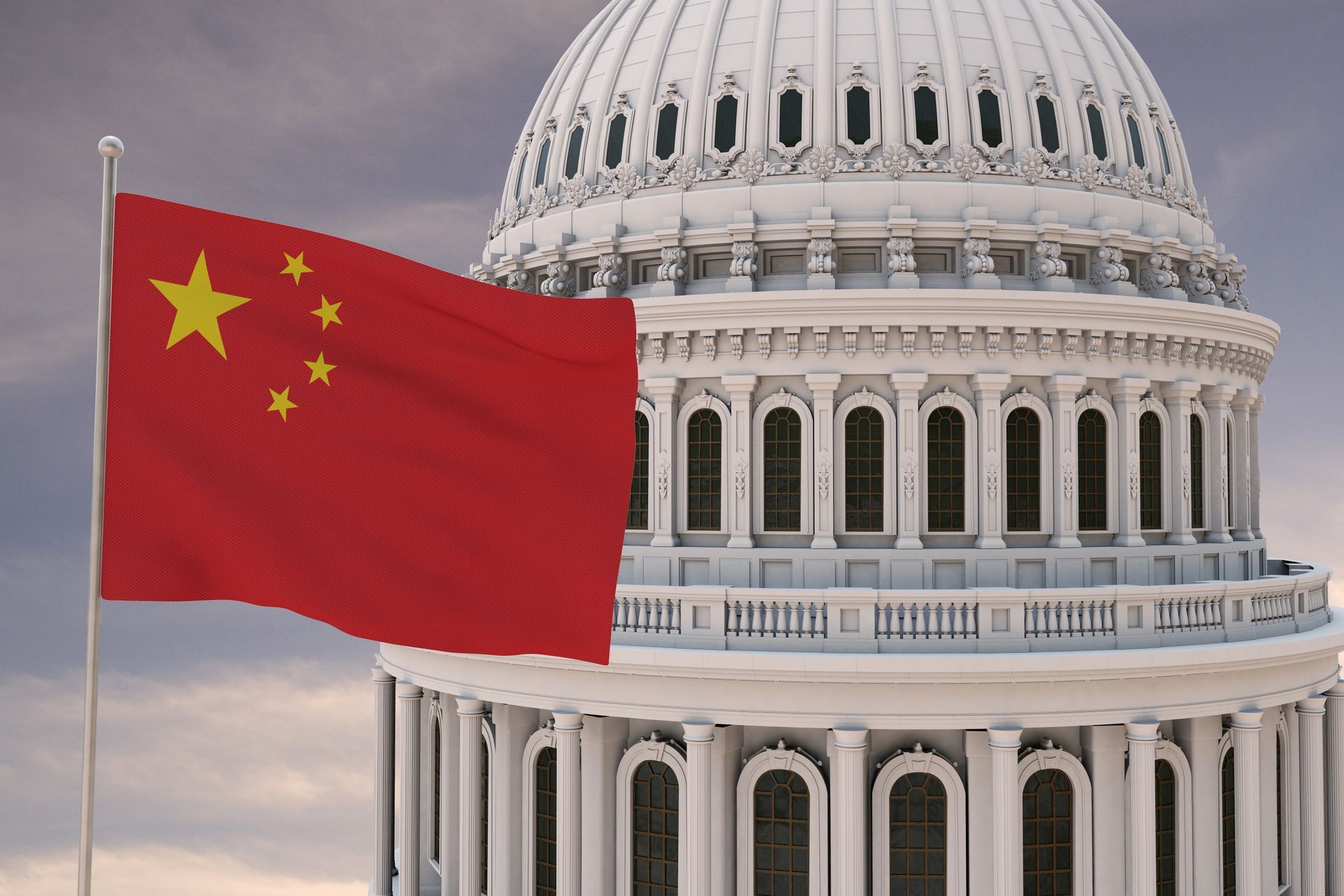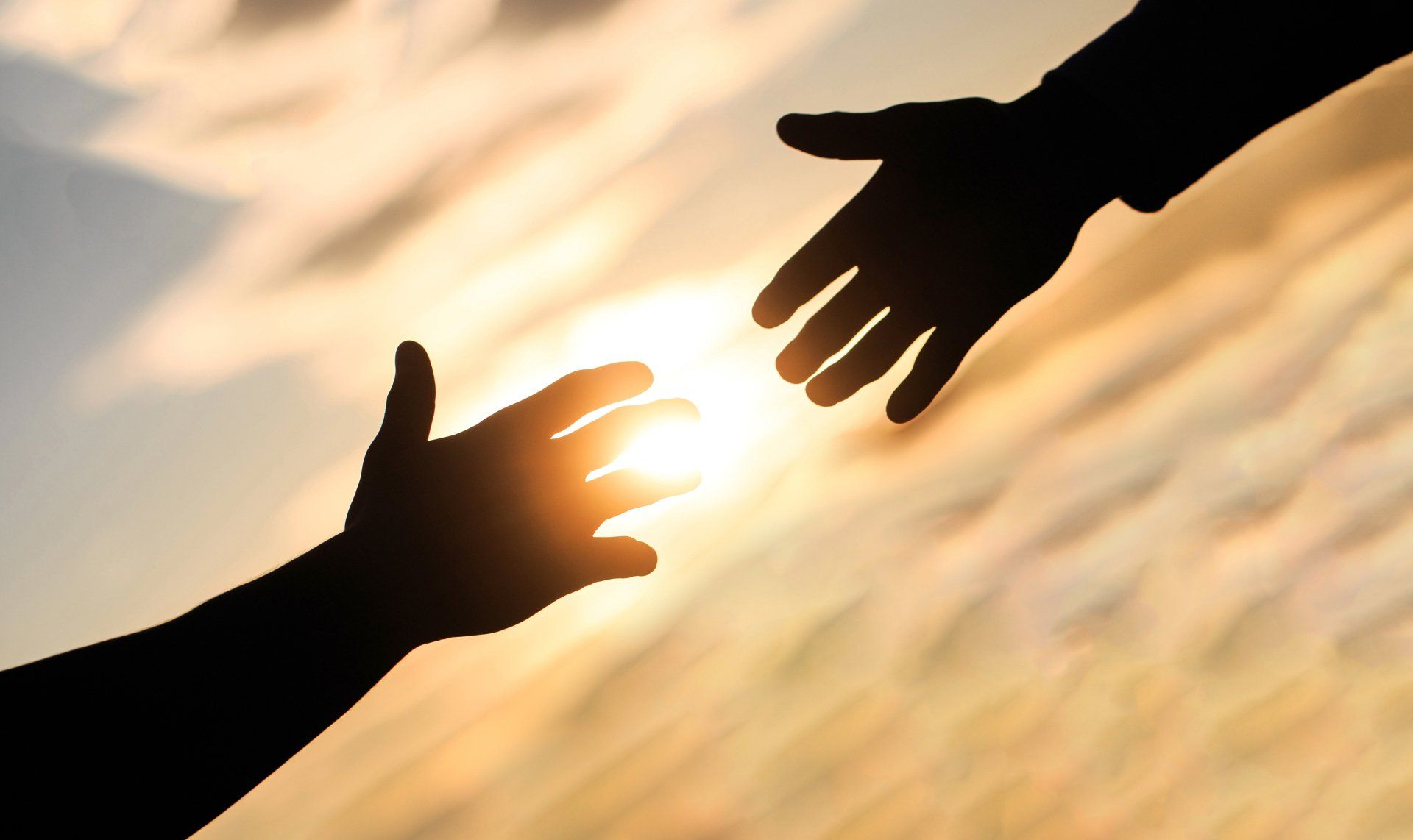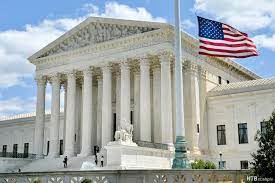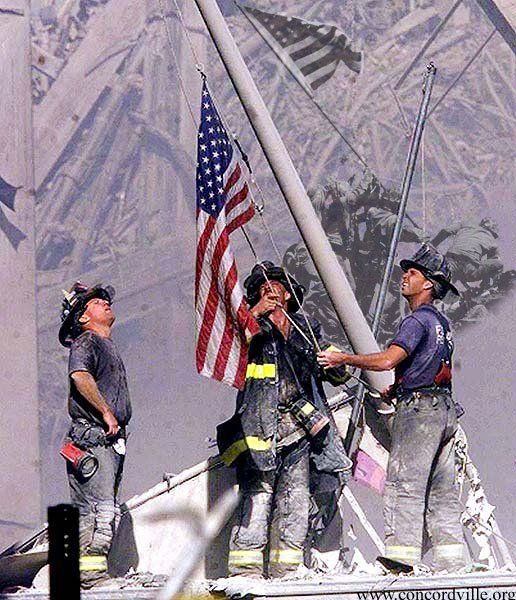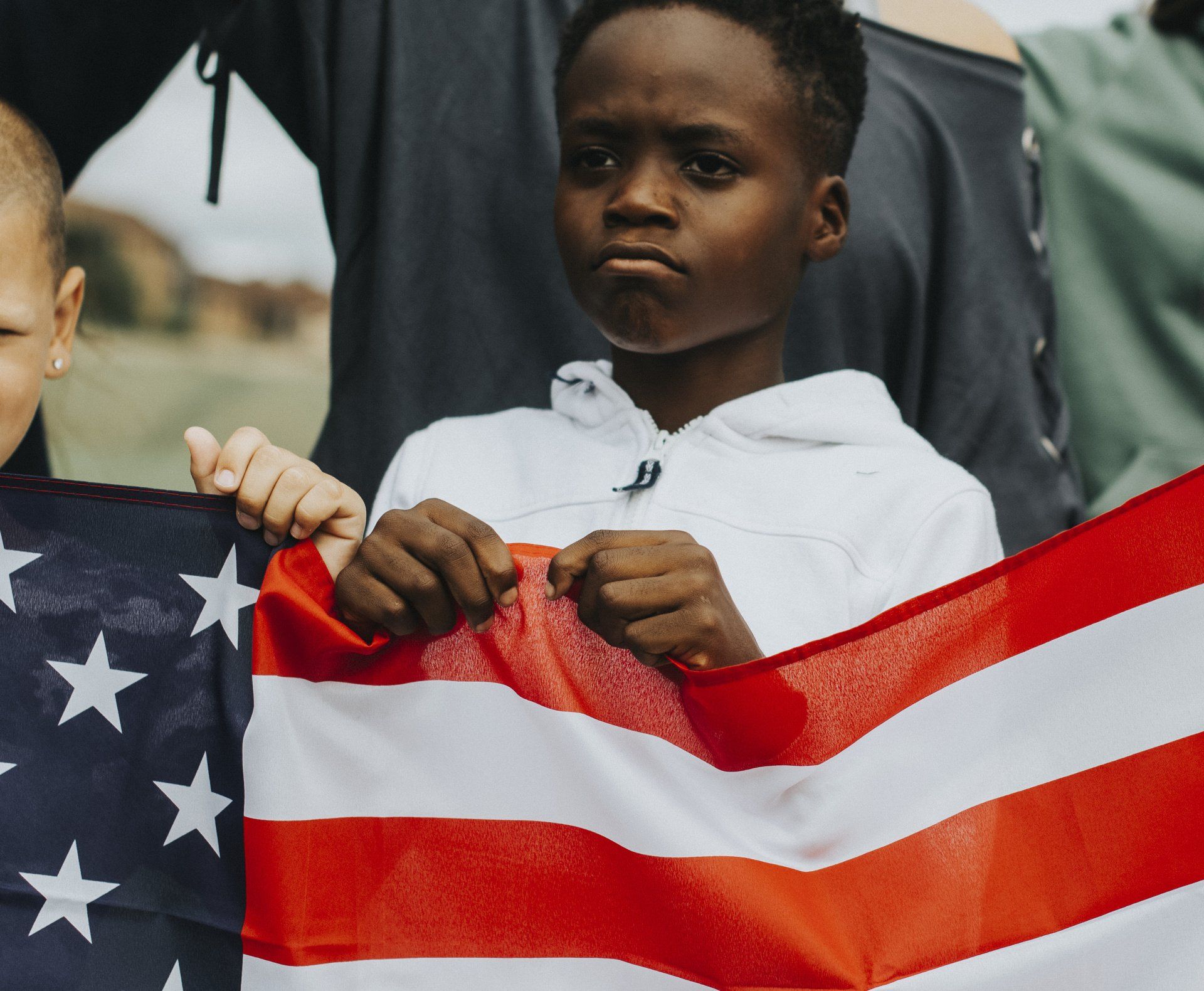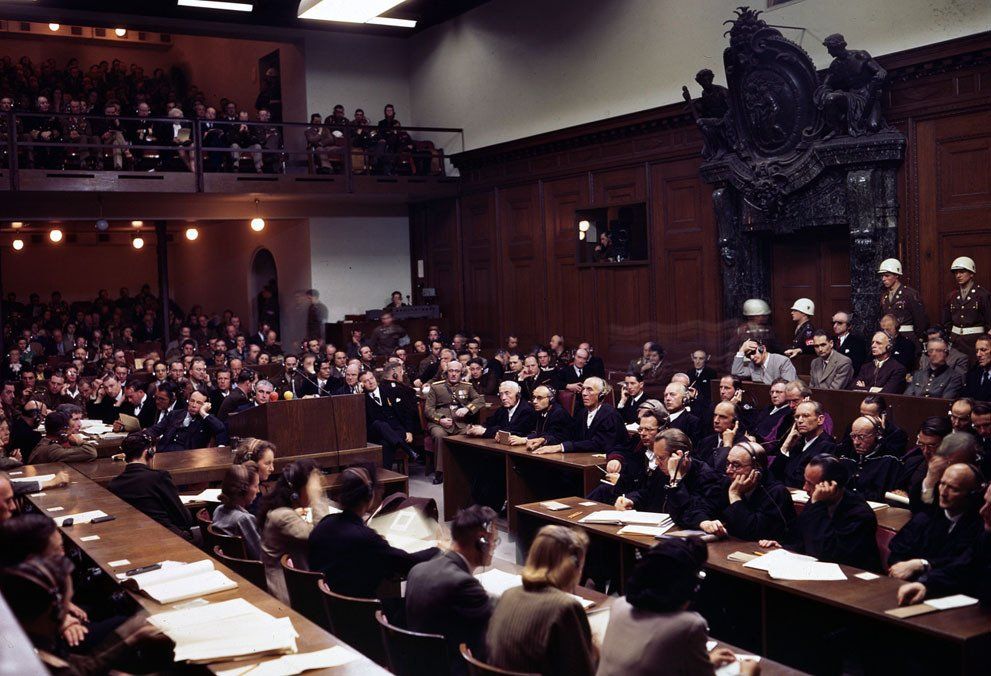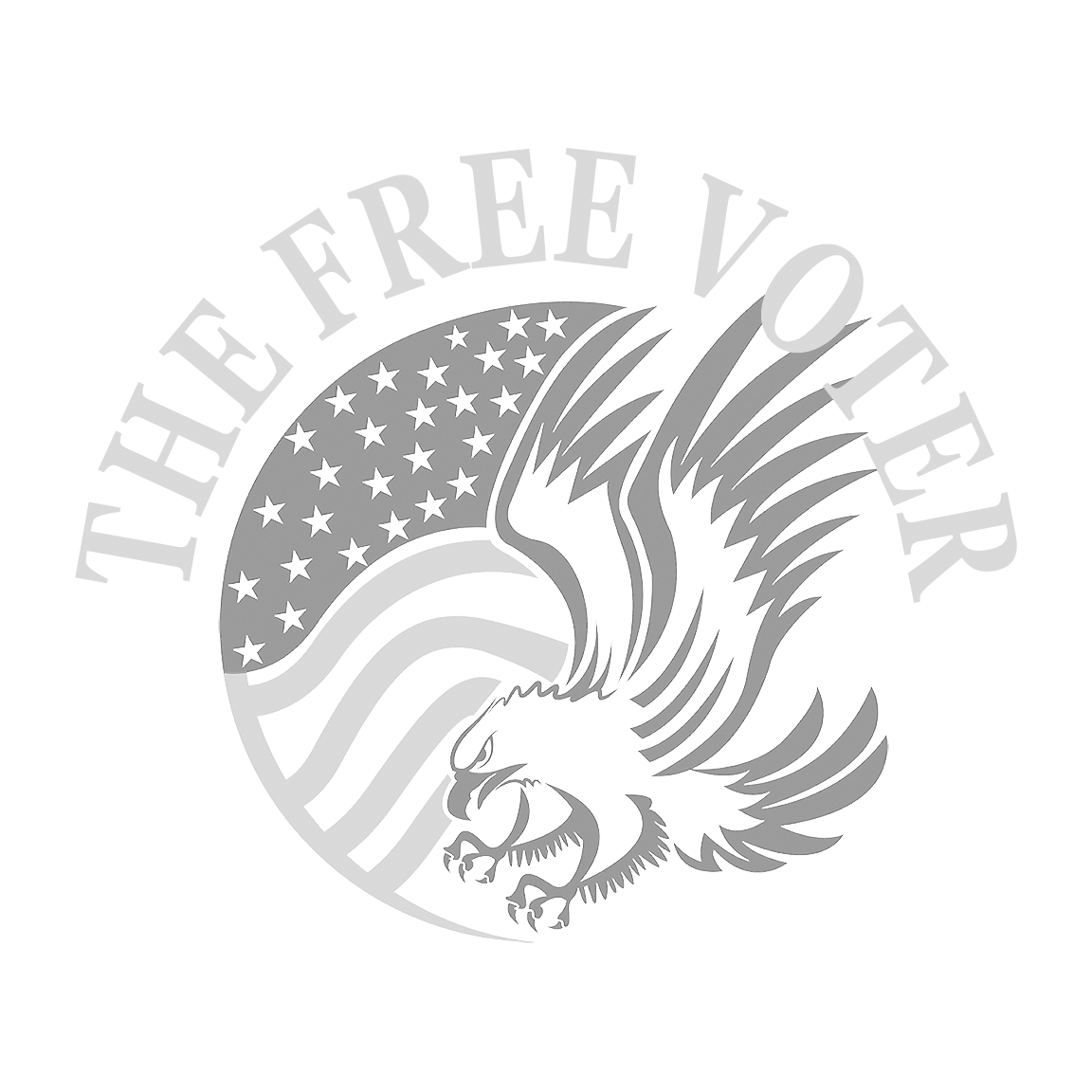The Road Seldom Traveled: My Personal Journey to Conservatism
Choose Wisely the Path You Take
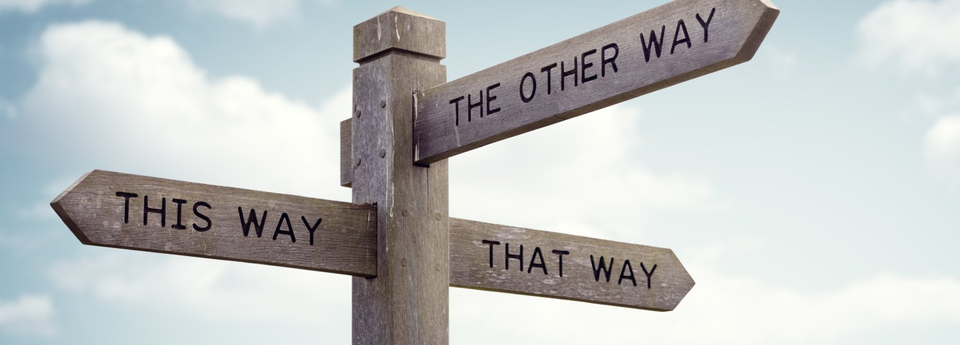
Unlike many people who transition from the Democratic Party to the Conservative Republican Party my transition commenced long ago over a period of several decades. There was no epiphany or sudden traumatic event that caused me to jump ship. It was a slow slog against the backdrop of a long series of events and personal evolution that led me to where I am today.
My parents were baby boomers who grew up in the “rebel with a cause” period of James Dean and Elvis Presley. My Dad served in the Air Force, dishonorably discharged for an affair with the base commander's wife (who later became my mother).
They began their lives together as rebels, hard-working hippies. Normally, the word “hippies” conjures up images of really strange people who live in communes. Although there were many of those, the vast majority of hippies in those days actually worked for a living (bagging groceries, washing cars, dealing marijuana) and did not abandon the work ethics of their forebears, but “squished together” an awkward mix of sexual freedom, civil liberties and a new sort of morality that had more to do with love, peace and freedom than anything else.
This societal nuance is really lost in today's culture wars when talking about that period in our history. My folks resembled most of the young generation ascribed to the tenets of the Democratic party in the sixties and seventies, at least in the Bay Area of San Francisco where I grew up.
My dad was a UPS driver and my mom was a switchboard operator for Pacific Telephone. My parents managed to put together a comfortable middle-class living. They provided well for my brother and me. In-between their twists, trysts and arguments, they were also highly active as parents and very active politically.
My father was a union steward for the local Teamsters Union. A union steward (also known as a union representative or shop steward) is an employee of an organization or company but is also a labor union official who represents and defends the interests of his or her fellow employees. This is a reflection of the morality and political posture of the then Democratic Party before it sold out its working-class members and became a tool of, of all things, Wall Street and big tech (well, how the heck did that happen?).
My father embodies the perfect combination of a belief in the idea of hard work and the American dream combined with the notion that government has a role and responsibility, through labor unions, to make sure that companies do not rip off or harm their employees. I have always felt that this is a really good thing, to this day.
They volunteered for Robert Kennedy’s presidential campaign and attended every Civil Rights march in Berkeley and Oakland and anywhere else in the Bay Area with their two little kids, my brother and me, in tow. My parents regularly socialized with all sorts of people from different places and I was raised in such a way that I never saw any person as being anything other than a human being.
I can remember when my brother Ted and I were at the campaign headquarters in Concord, California, operating a campaign button stamping machine. We stamped hundreds, if not thousands, of those little campaign buttons. I also remember going throughout the neighborhoods with my dad, knocking on doors and handing out those buttons.
Robert F. Kennedy dedicated much of his career to public service, fighting for civil rights during his tenure as U.S. Attorney General and against poverty while a U.S. Senator. His presidential campaign brought hope to those who supported him, believing that he could heal a nation plagued by racial divides, poverty, and the long and costly Vietnam War.
But my most prominent memory was my father bringing us to the Robert Kennedy’s June 2nd, 1968 visit to Concord, where we lived. I remember the jet airplane he flew in as it appeared in the sky. People would exclaim, “There it is. There it is!” And I clearly remember the plane approaching the runway. As it touched down, the pilot revved the engines and the plane swooshed by…and then rose into the air.
It would circle and then come back to approach the runway once again, only to do the same thing repeatedly. It was at least three or four times that the plane would attempt to land, and then finally touched down to the nearly hysterical crowd waiting. This was a source of amazement and wonderment to me at the time, but looking back on it now, I realize it was because security precautions were so tight and that his life was constantly in danger.
After his speech (which I had heard many times on the radio and TV) extolling the virtues of brotherhood and peace, railing against poverty and the war in Viet Nam, my Dad carried me on his shoulders and took me to the very front to shake Robert Kennedy's hand. Bobby was moving very quickly down the line on the other side of a chain link fence where a great many were standing, reaching and grasping just to touch him. Bobby Kennedy was a folk hero. He was truly a person who people looked up to. My parents certainly did. I still do to this day, despite what others may say.
I remember it like it was just a minute ago when he reached out to shake my hand. He looked at me and gave it a quick firm shake, as if I was a real little man. I recall clearly in that moment, even though I was only seven years old, a look deep in his eyes, of hope and sadness at the same time. I later understood he was an eternally optimistic and hopeful person and perhaps saw in me some hope for the future. Sadly, he must have known his life was in danger and that he likely would not survive; that our country was in danger, calling him to do what he had to do.
But there was no fear, only hope, unwavering, eternal hope combined with a deep, deep sadness. That was a seminal moment in my life I will never forget. Forgive me, I always get choked up when I tell this story.
I was troubled and disillusioned for many years after he was taken away from us. I am no conspiracy theorist, but I think that most people, after having seen the evils that the swamp has perpetrated over the last years, know deep down that it was the swamp that killed him.
I will be forever grateful to my mother, who spent long hours sharing stories of people and places and the religion of my American Indian ancestors. Today, I identify as a Cherokee Indian, alongside my Scottish, Irish and other European ancestry. The story is told that my grandfather was a full-blooded Cherokee who ran off the reservation in Missouri in fear of being hung after having bedded my grandmother, who was half white and half Chippewa, as was the fate in those days for any “red” man who dared bed a white woman.
During those days during the Great Depression, the New Deal provided many great jobs of which my grandfather was a beneficiary. He, of course, became a staunch Democrat.
I remember my mother having to be driven back and forth from a pier in Oakland during the Occupation of Alcatraz from November 20, 1969 to June 11, 1971. This was a 19-month long occupation. My mom provided field support for the 89 American Indians and their supporters who occupied the island. The protest was led by Richard Oakes, La Nada Means, and others. I learned that peaceful protests can be a powerful tool to cause the powers that be to make changes. The months and years following this, and other American Indian protests, eventually led to heightened awareness and a certain renewed respect for my red forefathers. I'm happy and proud my mom did her part to make a stand.
All these things left an indelible impression on me as a young boy. By the time I had developed into a young man in my early teens, it was fair to say I identified strongly as a Cherokee, was for equality on all levels, was for peace and against war for almost any reason and voted Democrat.
That was then; this is now.
I was not particularly religious but I had a strong work ethic and by the time I was 21, I had launched a career in sales in the computer electronics field that turned out to be quite fortuitous and profitable. So, I left the struggle of working two to three jobs to attend classes, attempting to get college degrees and became a full-fledged businessperson.
This turned out to be both a blessing and a curse at certain times in my life.
Looking back at it now, I consider it as a net blessing!
But there were times in my thirties and forties when I was passed over for jobs that I was professionally qualified for because I did not have a degree and likely because I didn’t pull an “Elizabeth Warren” and use my Cherokee identity as a tool for advancement. My grandfather would have been terribly upset with me if I had done that.
Nevertheless, by the time I was 25, I had experienced a good bit of the good life and began to look at things differently. Whereas my grandparents and parents were constantly in fear of scarcity and looked to the government to protect them from the woes of poverty and recessions and such, I, having experienced success, realized that I didn't need anybody to take care of me.
That was probably my first epiphany and the first step toward a conservative mindset.
Then, as often happens to people who were raised by people with no sexual morality, I was often confused in relationships between the desire to have free sex and my inner conscience which told me that living a stable married life like my grandparents was the actual correct course. Also, since I was a high earner at that time, I was a target for women who could be described as “gold diggers” or opportunists. During the next 10 to 15 years, I went through a great deal of struggle in this area, which at each juncture led me to become more and more conservative and less and less liberal regarding that area.
But it was not the morality issue or the lack of liberals’ morality that motivated me to vote for Ronald Reagan in 1982. It was the fact that during the late 70s, I was keenly aware of what was becoming an increasingly unfair thought process within the Democratic Party. The processes of dissociation had already begun and were taking their toll on American society. Neighborhoods that I remembered as beautiful and peaceful were becoming run down and ever more violent.
Although I did not understand it as dissociation at that time, I just knew that something was wrong. All the Democrats wanted to talk about is how we needed to spend more money and raise taxes, which bothered me as a high earner, and yet at that time anyone could see that all the money in the world wasn't going to help the problems that existed in the ghettos.
Being raised in Oakland and the Bay Area from ages 7 to 15, I was bused from our middle-class neighborhood into the ghettos and experienced firsthand how things were for those people. Let me just say that the social programs were not working because all they did was throw money at a problem that was more cultural than structural. This is the topic for an entire trove of books that have been written. I will probably write one myself someday.
What is clear to me today, but not so clear to me at that time, is that there was a shift occurring and that the Democratic Party was becoming less representative of working men like my father and grandfather, as well as an atrophying morality, and that the conservative Republican party was becoming more representative of working people (and definitely more ethical).
So, take all this into account and then add in contrast that you had Ronald Reagan speaking about lowering taxes, American greatness, a thousand lights of hope and a city on a hill, and it was all just more in line with the American dream and the democratic values that I was raised on. It was a no-brainer for me. I cast my first vote in a presidential election for the Republican candidate, Ronald Reagan.
I also voted for Reagan for his second term. Things were great in the early 80s; the economy was great, America seemed to be coming together as a nation, everywhere I went in Southern California people lived together in peace and harmony and actually were having fun together. As far as I can remember, nowhere (and at no time at that place in the country) was race ever an issue regarding anything. Things went on like that for a brief little while.
It was in 1988-89 that I was the victim of an abortion scam. A woman who was my secretary flaunted herself and seduced me. Once she became pregnant, she subsequently had an abortion after I declined to marry her. To be clear, I have to say that as a willing party, I take full responsibility for my role, but I was awfully naive and caught between the forces of two social imperatives: one, the sexual revolution with the obligatory sexual freedom, the other, the traditional and conservative values of marriage and patrimony.
The two do not mix.
This was a deeply painful experience that I could write an entire book about (and I may someday). Suffice it to say that at that time, I was going through a combination of personal and financial challenges that led me to meet a man who invited me to Calvary Chapel in Costa Mesa. It was in the company of some wonderful Christian people that I gave my life to Jesus Christ and became a born-again Christian at the age of 27 and at that time, began the process of trying to build a personal moral compass after practicing just the opposite up until then.
This would later have a much greater impact on my decision to remain in the conservative Republican party. But at the time, I was still searching and looking for answers, learning and growing. I would eventually find myself in a sort of self-imposed exile in Las Vegas and went through the next seven years, from age 30 until I was 37, rather lost and confused, but still working and growing and developing. Although I didn't know it at the time, I had put myself on a path of great renewal and substantial growth and success.
All of this had a profound effect on how I voted in the next several elections.
So, then there was Bush Senior. I cast my vote for him but later came to regret it.
His famous “Read my lips. There will be no new taxes,” was a bitter disappointment to many of us who were just trying to get ahead at that time, and there were the boiling controversies of the Iran-Contra scandal and other such things that eroded my confidence in the Republican Party. I wasn't sure really; I couldn't actually put my finger on it. I just felt that the Republican Party had begun to drift.
And then there were the LA riots in 1992. The 1992 Los Angeles riots, sometimes called the “1992 Los Angeles Uprising”, were a series of riots and civil disturbances that occurred in Los Angeles County in April and May of 1992.
Unrest began in South Central Los Angeles on April 29, after a trial jury acquitted four officers of the Los Angeles Police Department (LAPD) for use of excessive force in the arrest and beating of Rodney King, which had been videotaped and widely viewed in TV broadcasts.
This had a deep and profound impact on me because I, like many others, perceived this as bad cops beating on an innocent black man. I could not dispel the notion that this was, in fact, racism. I was deeply shocked and turned off by the entire system at that point.
At that point in time, I was not sure who I was or what (or whom) I would vote for. I can still remember heading to the voting poll, recalling the speeches Bill Clinton had given leading up to the ’92 election. His calls for racial unity and fairness for all Americans and economic growth and prosperity really got to me. I literally flipped my vote that day on the way to the poll. He sort of reminded me of Bobby Kennedy. I was never fully convinced, but it seemed the best vote at the time.
And in like fashion, slick Willy tricked me out of my vote on his re-election in 1996, even in the face of the Monica Lewinsky scandal, the controversy over NAFTA, the China scandals and all the other sexual immorality scandals because at that time, I viewed his stance on racial equality and affirmative action more important than his problems with his pants’ zipper and I had yet to know enough to predict the massive job losses that would result from his globalist-leaning policies.
I really wish I could take back that vote.
Although I did not realize it at the time, Bill Clinton got a pass for being the so-called first “black” president, even though his policies were systematically destroying the very black people he and his party represented to help. Mostly what they did was help themselves to money and power and throw black people and other poor people in this country further and further into decline, brought about by dissociation and failure to see the actual root causes and, more importantly, the failure to address them.
So, at this time began the ugliness of identity politics, and by then I was absolutely certain that the Democratic Party had, once and for all, lost (or thrown out) its moral compass and would never again be able to claim any semblance of moral authority, despite how they desperately attempted to use dissociation, along with its ugly faces of race-baiting and identity politics, as a way to hold on to a hollow moral authority to stay in power.
The election of 2000 brought into focus the vast differences between the Democratic and Republican parties in the personas of Al Gore and George Bush, Jr.
At that time, I thought there was a chance to get things back together in this country, once and for all. Although “Junior” was a little too much of a blue blood for me, he was clearly not a racist and was pro-business and I liked that. At the same time, Al Gore tried to convince everyone that the world was going to end due to global climate warming and that people had no choice but to vote for him or else we were all just bad people doomed to roast to death.
I really dislike people who say they are “the only choice”. After all, this is America. We are free and we should be allowed to make up our own minds without some hoity toity politician telling us that he is the only option. However, these days it seems that with identity politics, everyone makes that claim, and I have sort of gotten used to it and try to look past it, but it still bothers me.
Yesterday was the19th anniversary of the attack on New York. I am sure I am just one of many, if not most of us, who can remember exactly where we were at that time. Although I have always been a “dove”, there was a certain part of me that became angry and really liked the fact that we were acting against the people who did that to us. Looking back on it, I think it was a terrible mistake to go to war in the manner we did. I think that it would have been much better to conduct a thorough investigation and hold the responsible parties accountable. I think it is to our great National shame that we all know with almost absolute certainty that in most cases we attacked the wrong countries for the wrong reasons. We are still stuck there, and President Trump was the only sane person trying to disentangle us from these endless wars.
I think there is a strong case to be made for protecting the Homeland by fighting off the terrorists where they are located, but even so, it is clear to me that this whole thing was a ruse formulated by the military-industrial complex and many people made unbelievably vast fortunes while thousands of Americans died and tens of thousands were injured, let alone the hundreds of thousands of middle easterners who died and who-knows-how-many-more injured. Today the mess continues 19 years later. We need it to end.
This is the very reason I am against further affirmative action because of the harm has come from it. Most people realize, once they gain enough wisdom, that government, despite its best intentions, often makes policy reforms with unintended consequences. Yet, for some reason, government is never able to recognize past mistakes it has made and seems completely incapable (or more likely, unwilling) to undo them.
Take, for example, the mental health bill Reagan passed back in the 80's, closing all mental health facilities. At that time, if you were a schizophrenic or were proven to be a danger to yourself or to others due to mental illness, you would be committed to what was otherwise known as an insane asylum. These were mental health facilities where people would be put for long-term mental health rehabilitation. The idea under the Reagan Administration was that local communities and families were better capable of caring for these mentally ill people.
But in practice, as we know today, it is virtually impossible for a family member to get mental health services for a family member who needs it. The result has been mass carnage with mass shootings, unbelievable numbers of suicides and unnecessary pain and death. I say “unnecessary” because all government would need to do is bring this up as an issue, recognize that the current policies were a mistake and institute policies that would address the issue. But this seems impossible for some reason.
For the same reason, we should regret the policies that led us to today's police state. The Patriot Act, which the federal government shoved down our collective throat on the pretense of keeping us safe, continues to violate our rights to this day and was used as a weapon against a political candidate in the 2016 election.
No matter who you like or voted for, you cannot possibly think that this is a good idea. Government needs to undo the harmful laws that were passed because of its knee-jerk reaction to the attack on 9/11.
So, I was definitely having buyer's remorse by the time I saw Barack Obama give his 2006 speech at the DNC. I will never forget the words, “there is not a Black America or a white America, but a red, white and blue America”. But once again I was let down after having voted twice for Mr. Obama.
Now that the record has been shown, we know without a doubt that he has violated the Constitution more times than any previous president by passing more executive orders than any previous administration and literally telling more lies to the American public than all presidents combined in the history of our Republic.
Not to mention the fact that he actually used the Patriot Act, the FBI and Department of Justice to spy on and attempt to overthrow a presidential election and then attempted to unlawfully conduct a coup against the elected President.
He then further reached far beyond his last days in office to become who I think was the person most responsible for the failed impeachment hearings and all the disastrous events that are happening in our political sphere today. Yes, I blame Barack Obama.
So, today I recognize that the Great Recession of 2008 was the result of another failed government policy that had its origins in dissociation and affirmative action. Anyone who is honest about what happened will recognize that it was the bad loans, millions of bad loans for $150,000, $200,000 or even $300,000 homes, given to people who earned only minimum wage.
Yes, home ownership is a good thing, but a 21-year-old who has no experience with a low paying job at McDonald's should not be allowed to buy a home. I was 42 years old before I could afford to buy my first home. That was in 2003, before they loosened up the banking laws. I had worked hard all my life but with all the personal challenges, upheavals, learning experiences and growth, I was not ready until later in life. Neither are most people in their twenties and still some in their thirties.
It was, in fact, the Bush Administration in their attempt to dissociate themselves from the real problems of poverty and black home ownership by gerrymandering the banking regulations, making it possible for so many bad loans to have been made that caused that disaster. As a result, the predictable outcome was that many people couldn't afford to pay their mortgages and since there was also a growing sense of entitlement among this group, many people often didn't have the commitment necessary to pay their bills. As what should have been a predictable result, foreclosures and bankruptcies spiraled out of control in 2007 until finally, in 2008, there was an outright financial crisis. A high school Econ student could have seen this coming. And there were many people like Porter Stansberry who did predict it. But nobody wanted to listen.
Home ownership for the sake of home ownership is bad policy. It resulted in bad laws that resulted in tons of bankruptcies that almost crashed our entire banking system. Government overreach to attempt to bring about some form of dissociative homeownership equality was the stupidest thing to have happened to our economy since the Great Depression.
Bottom line, equality in outcomes without equality in merit and effort will always be a bad thing when attempted.
Many people give Barack Obama and his administration credit for helping get us out of that problem without bothering to mention that it would never have happened had government not gone so far to attempt to bring their vision of equality to housing by lowering lending standards to people who were mostly of color and almost entirely not financially prepared for home ownership.
The massive problem with that is that, at the time, Obama was a Senator and voted to pass these laws that created this problem, did nothing to speak the truth to what the problem really was. He deserves credit for nothing more than being just another swamp creature with a touch of anti-white racist in him.
Or perhaps his experience as a neighborhood political organizer was somewhat lacking in lending him credibility as a macro-economic guru. He just sat there and let it happen. Then after his election spent trillions of dollars to keep the economy barely moving while supporting every ridiculous giveaway and entitlement, then walking out of office looking like a great man. I call bull.
So, like many other people by this point in 2015, when Donald Trump announced his run for the presidency, I had become completely disillusioned with both parties. Public approval for Congress, and government in general, have been at historic lows for the last eight to ten years and it is my belief that only a populist movement toward conservatism and universal morality combined with a reset by means of an Article V Convention are the only paths forward.
So one of my favorite sources to look to how we should be thinking about morality and government are the Federalist papers and statements made by the founding fathers. Most particular I'm fond of the farewell address of George Washington and 1796.
So I would say that my position today is that no free government or people who want the blessings of liberty can have it if they don't have a system that has a fixed definition and passion to adhere to all things that are just, that they would practice moderation and temperance, that they would be humble and frugal, and that they would be virtuous by frequently referring to fundamental principles such as the ten commandments and other commonly known dictums of common decency and good faith.
My grandmother, the half French and half Chippewah Indian, would always tell us boys growing up these things. "Treat others as you want to be treated. Follow the Golden Rule!" If I heard her say that once I must have heard it at least a thousand times! "Follow the golden rule," she would say.
That's also what Jesus teaches us. Treat others as we want to be treated. Sounds simple right? It should be, too.
So I am amazed how people like AOC can say that she would want to be treated the way she treats her political opponents. Tough love is one thing, but outright lies and personal attacks without any offer of proof is evil and she does it and so does most of the left and too many of us the right. Just follow the Golden Rule!
So, this is why I began in 2016 to identify myself as an independent. But it seems that my definition of “independent voter” is something quite different than a member of the American Independent Party, a far-right political party established in 1967.
That is not me, and I suspect not most people in the middle who identify themselves as free-minded and independent of organized political parties.
So that is why I founded the "The Free Voter" website. I took the idea from free voters in Germany, who participate in elections without associating with a registered political party. Usually, it involves a locally organized group of voters in the form of a registered association. I think this pretty much describes me and millions of other people who have voted for different parties on more than one occasion. It allows people to identify as a group of people pretty much disgusted with both sides.
For example, I do not know anyone who does not think that the government has grown incredibly big and incredibly intrusive. I have never spoken with anyone that doesn’t agree with the concept of term limits for career politicians. I also don’t know anyone who doesn’t think that there should be a fair tax system. I also don’t know anyone who doesn’t believe in school choice. And most importantly, I don't know anyone who doesn't think that the government shouldn't balance our budget and quit spending so much money on stupid and ridiculous things like free cell phones for people who can really afford them, and endless wars.
So, if I ever do form a Free Voter Party here in the United States, it will be based on a Convention of States call to action for an Article V convention, intended to:
- Rein in the federal government and return the power to the States
- Balance the budget and quit spending on corrupted things
- Implement term limits and send these politicians back home before they have a chance to get entrenched in the swamp
So that is it. That is the story of how I went from Democrat to Republican to Democrat to Republican to become a Free Voter. I decided to write this article because, as strange as this sounds to me, I actually believe there is a majority of people that have been through the same roller coaster experience in terms of their political beliefs during the course of their lifetimes.
We hear about “Baby Boomers”, “Millennials” and “Generation Z”. I am “Generation X” and people of my age were born and raised during and after the Civil Rights era including such alumni is Steve Jobs, Bill Gates, Barack Obama and many other notable people.
We are the ones most responsible for the free and unfettered thought processes that created the internet and have brought forward the tremendous innovations of the 80, 90's and 2000's. Everything we are doing today is based on the technological foundations that the people of my generation thought of.
Almost all of it.
Sadly, it is also true that there are many people in my generation who sit back and say nothing. They are okay with just minding their own business. The problem is that we are approaching a societal antithesis, a juncture in time when all people must let their voices be heard to begin to steer our country in the right course.
No free government or people who desire the blessings of Liberty can obtain it if they don't have a system with a fixed definition, and a passion to adhere to all things that are just, that they would practice moderation and temperance, that they would be humble and frugal, and that they would be virtuous by adhering to fundamental principles such as the Ten Commandments and other tenets of common decency and good faith.
Inaction is no longer an option.
You must choose.
Choose wisely.
